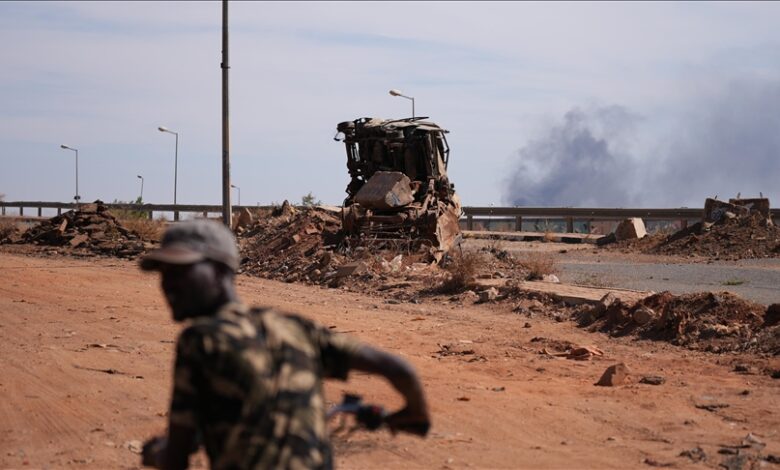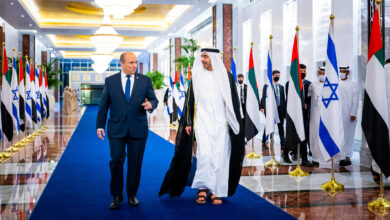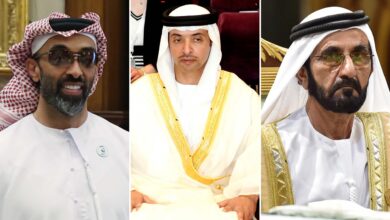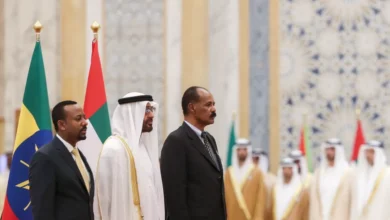The UAE’s Drone War in Sudan: Leaked Intel Reveals Escalating Support to RSF

Leaked intelligence reveals that the United Arab Emirates has significantly escalated its military support to Sudan’s Rapid Support Forces (RSF), supplying Chinese-made drones and advanced weaponry in a bid to reshape the outcome of Sudan’s civil war.
U.S. intelligence agencies, including the Department of Defense’s intelligence wing and the State Department’s bureau of intelligence, reported in recent months that the UAE has expanded its clandestine military assistance to the RSF. These reports, corroborated by multiple defense and regional officials, outline an alarming surge in the flow of Chinese-made drones and other lethal systems to Sudan.
This latest phase of support includes advanced Rainbow-series drones, manufactured by China Aerospace Science and Technology Corporation—a state-linked defense conglomerate. Among these systems is the CH-95, a drone capable of long-range surveillance and precision strikes. It can remain airborne for up to 24 hours and is engineered to deliver high-impact strikes deep into enemy territory.
These drones are being used by the RSF not only to maintain aerial dominance but also to conduct targeted attacks on Sudanese government forces and civilian infrastructure. The timing and scale of this escalation appear to be a response to recent gains by the Sudanese Army, which earlier this year regained full control of Khartoum, reversing months of RSF territorial expansion.
A Clandestine Arms Pipeline
Middle East Eye previously revealed how the UAE has operated a complex regional supply network involving Chad, Libya, Somalia, and Uganda to funnel weapons to the RSF. This network has expanded in recent months. Logistics centers, airstrips, and covert storage facilities in eastern Libya and northern Chad have been used to transfer munitions and equipment. These include mortars, artillery, small arms, heavy machine guns, military vehicles, and various grades of ammunition.
Amnesty International has also verified that the UAE has facilitated the transfer of specific Chinese-made weapon systems to Darfur, including GB50A precision-guided bombs and 155mm AH-4 howitzers—systems that have contributed to widespread destruction and loss of civilian life.
According to intelligence shared with Dark Box, some of these drones and weapons are directly operated by RSF-affiliated militias under the command of Mohamed Hamdan Dagalo, also known as Hemeti. Hemeti’s close ties to the Emirati leadership are widely known. His financial empire is rooted in Dubai, where his family maintains economic operations and oversees a lucrative gold smuggling network that extracts mineral wealth from Darfur to fund RSF operations.
Targeted Strikes and Proxy Warfare
In a May incident that shocked observers, Chinese drones supplied by the UAE were used in precision attacks on Port Sudan—one of the last government strongholds. These strikes reportedly injured members of a Turkish technical team assisting the Sudanese Armed Forces, indicating a new phase of the proxy war involving foreign experts and advisors.
The Emirati-backed drone strikes have allowed the RSF to reassert its dominance in Darfur following setbacks in Khartoum. In particular, the capture of El-Fasher—a strategic city in North Darfur—has seen RSF fighters recording themselves committing atrocities against civilians. Intelligence sources say the RSF has effectively weaponized starvation and displacement as part of its broader campaign of terror across Darfur.
The UAE has refused to acknowledge these developments publicly, even as its support is clearly documented in both open-source intelligence and classified briefings. At the same time, Emirati diplomats have been absent or dismissive during U.S.-sponsored peace negotiations, especially regarding the humanitarian catastrophe in El-Fasher, which has endured a prolonged siege.
Motives Behind the UAE’s Strategy
The UAE’s continued support for the RSF is part of a broader regional strategy. Hemeti’s alignment with Abu Dhabi ensures Emirati access to Sudanese gold, influence over Red Sea trade routes, and a decisive role in shaping Sudan’s future. In turn, the UAE uses this leverage to counteract rivals such as Turkey, Iran, and Egypt—each of whom has backed the Sudanese army.
With Sudan on the brink of state collapse, the UAE is effectively gambling on a paramilitary force notorious for war crimes as its proxy of choice. The weaponization of Chinese drones and the smuggling of advanced arms have transformed the RSF from a ragtag militia into a quasi-military actor capable of contesting state power.
This strategy comes with immense cost: the ethnic cleansing in Darfur, the collapse of peace talks, and a worsening humanitarian disaster with thousands killed and millions displaced. Yet, in the eyes of Emirati decision-makers, the potential geopolitical payoff appears to outweigh the reputational damage.
Conclusion: A Manufactured War
The leaked intelligence paints a grim picture of how foreign sponsorship—particularly from the UAE—is not only fueling but engineering Sudan’s prolonged civil conflict. The sophisticated drones, logistics chains, and diplomatic shielding offered by Abu Dhabi have turned the RSF into a modern war machine.
As global institutions struggle to contain the war and prevent genocide, the UAE’s covert interventions undermine all prospects for peace. Without international accountability and a halt to arms supplies, the Sudanese people are likely to face even greater bloodshed, displacement, and despair—engineered in boardrooms and airstrips far from the killing fields of Darfur.




